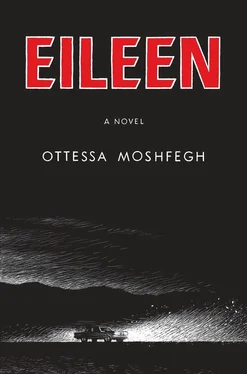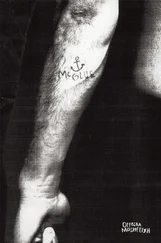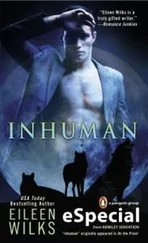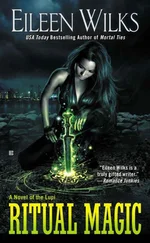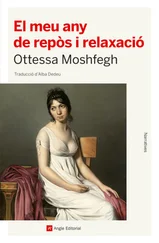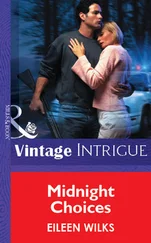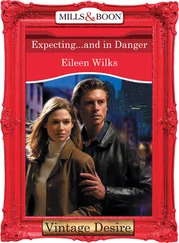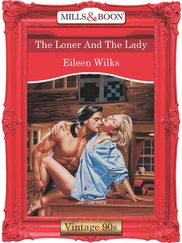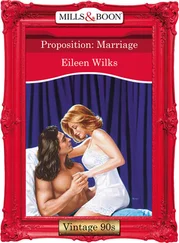But I didn’t want to go home yet. The night was young and I was beloved. I was someone important at last. So I went back into O’Hara’s, passed the same booth of men who were drunk, laughing, slapping the table, spilling their beers. I took the seat Rebecca had sat on, feeling just a hint of the warmth she’d left behind. Sandy slid an ashtray toward me, slapped a cocktail napkin beside my curled hand on the bar, red from the cold. “Whiskey,” I said, and stubbed out the cigarette.
The next memory I have is of waking up in the morning slumped over the steering wheel of the car, which I’d parked half inside a bank of snow in front of my house. A frozen pool of vomit sat next to me on the seat. My panty hose were full of runs. In the rearview mirror I looked like a madwoman — hair sticking out in all directions, lipstick smeared down my chin. I blew on my frozen hands, turned off the headlights. When I reached for the keys, they were missing from the ignition. I’d lost my cape, the trunk of the car was open, and my purse was gone.
T he house was locked. I could see my father asleep in his chair in the kitchen through the windows, the refrigerator door wide open. He sometimes left it that way when the heat from the stove and the oven made him sweat. And on my father’s feet, shoes. With the exception of Sundays, when he was closely chaperoned by his sister to church and back, if my father had shoes on, it meant there would be trouble. He wasn’t a violent threat, but when he got out he did things the warden would have called morally offensive — falling asleep on somebody’s front lawn, folding up postcards at the drugstore, knocking over a gum-ball machine. His more aggressive indiscretions included pissing in the sandbox at the children’s playground, yelling at cars on Main Street, throwing rocks at dogs. Each time he got out, the police would find him, pick him up and bring him home. How I cringed at the sound of that doorbell when an X-ville cop stood outside on the front porch with my father, drunk and tugging at his chin, eyes crossed. The officer would take his cap off when I answered the door, speak in hushed tones while my father busted into the house in search of booze. And if he chose instead to stay and take part in the conversation, there were handshakes and pats on the shoulder, the respectful pretense of love and loyalty. “Routine check, sir,” the cop would say. If a cop tried to express even the slightest concern, my father would take the guy aside and launch into a rant about the hoodlums, the mob, the strange noises in the house. He’d complain of ill health, heart trouble, back pain, and how I, his daughter, was neglectful, how I was abusing him, how I was after all his money. “Will somebody please tell her to give me back my shoes? She has no right!” And as soon as he turned to me, hands trembling and creeping up toward my neck, the cop would nod, turn and close the door and leave. None of them had the guts not to play into his delusions — ghouls and gangsters, ghosts and the mob. They would have let him get away with murder, I imagined. “America’s finest,” the prison guards of the civilized world, those police. I will tell you frankly that to this day there is nothing I dread more than a cop knocking at my door.
That morning I rang and rang the doorbell, but my father wouldn’t budge. I figured the keys were in the pocket of his robe or, worse, around his neck, wearing them the way I used to, a noose at the ready if I’d ever thought of it. I could have tried to walk to work that day, stick my thumb out, that’s true. Nobody would have looked twice at my outfit at the office. Nobody cared.
I went around the back of the house and tried to open the cellar door. Bending over and tugging at it had me burping up and gagging. It was not a pleasant morning. Nothing is more disturbing than waking up to the taste of vomit. With bare hands I cracked through the glazed layer of ice over the high snow and filled my mouth with it. It hurt my head. Maybe that was when the previous night came back to me: Rebecca, Sandy, leaving the bar and going back in. I recall sitting down in a booth, the sparks of matches, wobbling over manly fists with my Salems, the itchy wool of my dress or a man’s rough sweater rubbing against my neck, then falling down and laughing. “Rebecca,” someone had said, and I responded, “Yes, doll.” I’d been Rebecca for a night. I’d been someone else completely.
A night of heavy drinking would kill me now. I don’t know how I managed it back then, though I’m sure my shame and embarrassment were far worse than the hangover. I shook off my fractured recollections and tried to gain access to the house. The cellar door was locked, of course. I considered busting through a back window with the heel of my boot, but I didn’t think I could reach up high enough to get my arm through and undo the lock on the inside of the back door. I pictured severing my arm on the broken glass, blood spewing across the snow. Surely my father wouldn’t stay mad at me if I was bleeding to death in the backyard. The image of blood-stained snow turned my stomach and I bent down to retch but all that came up was yellow bile. My head throbbed remembering the frozen pile of vomit waiting for me in the car. I wiped my mouth with the sleeve of my dress.
When I went back around the front of the house and rang the bell again, I saw that my father was missing from the chair. He was hiding from me. “Dad?” I called out. “Dad!” I couldn’t raise my voice too high or the neighbors would hear. And given that the day was starting, mothers sending their kids off to school, men leaving in their cars for work, they would soon see the old Dodge smushed into the bank of snow. The car was fine, but clearly the person who’d parked it was out of her mind.
Already we, the Dunlops, were regarded as something of a case in the neighborhood. Even my father’s reputation as a cop — an upstanding citizen, a man of service to his country — couldn’t make up for the fact that in recent years our lawn was never mowed, our hedges never trimmed. A neighbor would do that once or twice a summer, to keep up appearances, I’m sure, but it was passed off as a gesture of appreciation for the old man’s good work and sympathy for me, the skinny girl with no mother and little hope for a husband. We were the only house on the block without Christmas lights strung in our bushes, no fancy tree twinkling through the living room windows, no wreath on the door. I’d buy treats for Halloween, but no kids ever rang our doorbell. I ended up eating all the candy myself, chewing it up and spitting it all out in the attic. I didn’t like any of our neighbors any more than my father did — not the Lutherans, none of them, no matter their gifts or favors. They were goody-goodies, I thought, and I felt they judged me for being young and sloppy, and for driving a car that filled the whole block with smoke when I started it. But I didn’t want to earn any more of their scorn. I didn’t want to give anyone more fodder for gossip. I had to get the car into the driveway before it aroused suspicion. This was my thinking. And I had to clean the seat full of vomit before my father saw it.
But, of course, he’d seen it already. I suppose he’d been waiting up for me the night before and came out and yanked the keys out of the ignition after I’d passed out. It occurred to me all at once: He kept me from carbon monoxide poisoning that night. He may have saved my life. Who knows whether the engine had been running when he came out and yanked out the keys. It’s possible. The windows were up when I came to. Perhaps he simply wanted his shoes from the trunk, and that’s why he took the keys. Still, I like to think that somehow his instincts as a father — his desire to protect me, to keep me alive — kicked in that night, overrode his madness, his selfishness. I prefer to tell myself that story than to believe in luck or coincidences. That line of magical thinking always leads to too fine an edge. In any case, I was grateful to be alive, which was nice. At first I was all the more frightened at what my father would have to say, what he might want in return for saving my life. But then I thought of Rebecca. With her around, I didn’t need to beg for my father’s mercy. He could yell and cry, but he couldn’t hurt me. I was loved after all, I thought.
Читать дальше
